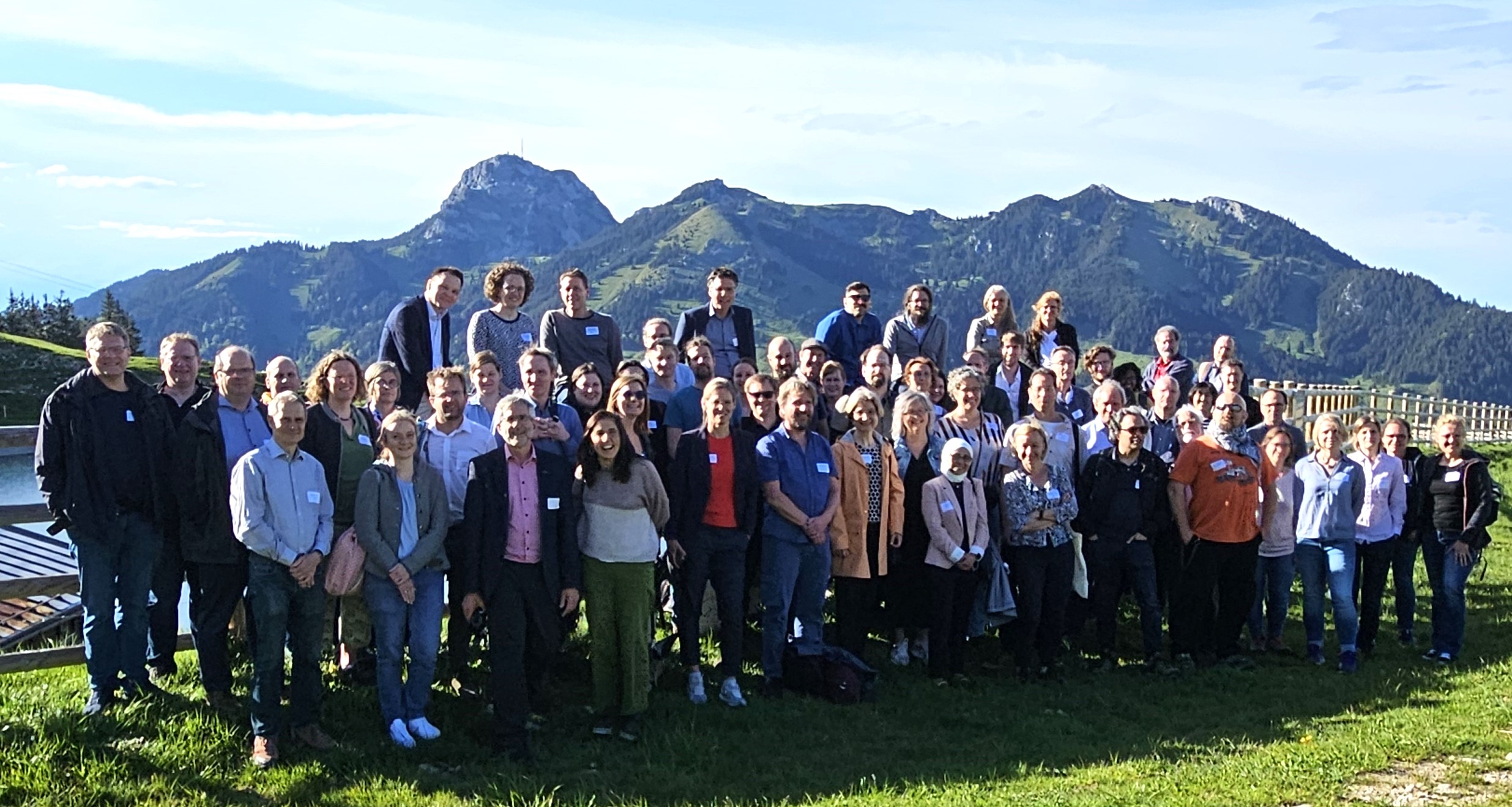Proceedings and videos of keynotes The conference proceedings and recorded keynote videos from the 12th…
EJEE Special Issue: Early Career Engineers and the Development of Engineering Expertise
Call for Papers – Deadline for Extended Abstracts: 30 September 2019 – Download in PDF
Theme description
As contemporary engineering practices evolve over time, engineering education providers face the increasingly complex challenge of preparing future engineering professionals. Trevelyan (2007) claims that a better understanding of engineering practice is needed to improve students’ preparedness to work in engineering, and this claim has received substantial empirical support (Brunhaver, Korte, Barley, & Sheppard, 2018). Research focusing on early career engineers has the potential to provide significant insight which could enhance engineering education provision, however there is a paucity in the research associated with this phase of the engineering career.
There are multiple benefits to engineering education and engineering education research which can be gained from studies focusing on early career engineers and engineering practice. For example, such research can aid in bridging the gap between ‘school-engineering’ and ‘work-engineering’ (Huff, Zoltowski, & Oakes, 2016; Johri & Olds, 2011), and an increased understanding of engineering practice can impact the efficacy of engineering education research itself through increased ecological validity.
To this end, in this special edition of the European Journal of Engineering Education, we are seeking papers which focus primarily on early career engineers. While research associated with any aspect of engineering education relative to the early stages of a professionals’ career are welcome, there are a number of topics of particular interest including:
- Transitioning from engineering education into working life
- Experiences and challenges faced by early career engineers
- Supporting early career engineers in the workplace
- Early career engineers’ professional development
- Developing expertise in engineering practice
- Definitions and misconceptions regarding engineers and engineering practice
- The perceived relevance of engineering education for employability and professional expertise
- Engineering career pathways
- Methods and methodological implications associated with researching early career engineers
References
Brunhaver, S., Korte, R., Barley, S., & Sheppard, S. (2018). Bridging the gaps between engineering education and practice. In R. Freeman & H. Salzman (Eds.), Engineering in a Global Economy (pp. 129–165). Chicago: Chicago University Press.
Huff, J., Zoltowski, C., & Oakes, W. (2016). Preparing engineers for the workplace through service learning: Perceptions of EPICS alumni. Journal of Engineering Education, 105(1), 43–69.
Johri, A., & Olds, B. (2011). Situated engineering learning: Bridging engineering education research. Journal of Engineering Education, 100(1), 151–185.
Trevelyan, J. (2007). Technical coordination in engineering practice. Journal of Engineering Education, 96(3), 191–204.
Relevant supporting literature
Dahlgren, M. A., Hult, H., Dahlgren, L. O., Segerstad, H., & Johansson, K. (2006). From senior student to novice worker: Learning trajectories in political science, psychology and mechanical engineering. Studies in Higher Education, 31(5), 569-586.
Eraut, M. (2004). Transfer of knowledge between education and workplace settings. In H. Rainbird, A. Fuller, & A. Munro (Eds.), Workplace Learning in Context (pp. 210-221). London: Routledge.
Lee, D. M. S. (1986). Intellectual, motivational, and interpersonal qualities and NOT academic performance predicted performance on first job. IEEE Transactions on Engineering Management, EM33(3), 127-133.
Lee, D. M. S. (1994). Social ties, task-related communication and first job performance of young engineers. Journal of Engineering and Technology Management, 11, 203-228.
Trevelyan, J. (2010). Reconstructing engineering from practice. Engineering Studies, 2(3), 175-195.
Trevelyan, J. (2014). The Making of an Expert Engineer. London: CRC Press/Balkema: Taylor & Francis.
Trevelyan, J. (2016). Extending Engineering Practice Research with Shared Qualitative Data. Advances in Engineering Education, 5(2), 31.
Trevelyan, J., & Williams, B. (2018). Value creation in the engineering enterprise: An educational perspective. European Journal of Engineering Education. DOI: 10.1080/03043797.2017.1421905
Guest editors
Dr. Jeffrey Buckley, KTH Royal Institute of Technology & Athlone Institute of Technology, jbuckley@kth.se
Emeritus Prof. James Trevelyan, The University of Western Australia, james.trevelyan@uwa.edu.au
Prof. Christine Winberg, Cape Peninsula University of Technology, winbergc@cput.ac.za
Submission process and deadlines
30 September 2019 – Last date for submission of extended abstracts: maximum 500 words outlining the background/context, research question/hypothesis/purpose, and study design/method.
1 November 2019 – Notification of reviewer feedback and invitation to submit full paper.
1 August 2020 – Last date for submission of full papers. Contributions are fully peer reviewed to ensure they conform to the high standards of the journal before they are accepted for publication.
Instructions for authors
Extended abstracts are submitted here: http://mc.manuscriptcentral.com/ceee
Instructions for preparing the full paper manuscript can be found here: http://tandfonline.com/action/authorSubmission?journalCode=ceee20&page=instructions
About the journal
European Journal of Engineering Education is the official journal of SEFI, the European Society for Engineering Education (Société Européenne pour la Formation des Ingénieurs, www.sefi.be). Its members are higher education institutions, individuals, associations and companies who share the common goal of improving the engineering education and strengthening the image of the engineering profession.
EDITOR-IN-CHIEF
K. Edström, KTH Royal Institute of Technology, Sweden, ejee.editor@gmail.com
DEPUTY EDITORS
J. Bernhard – Linköping University, Sweden
M. van den Bogaard – Delft University, Netherlands
ASSOCIATE EDITORS
E. Alpay – University of Surrey, UK
J. Case – Virginia Tech, USA
A. Kolmos – Aalborg University, Aalborg, Denmark
B. Williams – CEG-IST, Universidade de Lisboa, Lisbon, Portugal and DIT, Dublin, Ireland
Author benefits:
- Journal issues are published six times a year in print and electronic editions.
- In addition to regular issues, the journal also occasionally publishes special issues on specific themes of general interest.
- All papers published in this journal have undergone a rigorous peer review process, based on initial editor screening and anonymous double-blind reviewing by independent scholars.
- Papers are abstracted and indexed in a number of databases, among them Scopus, Educational Research Abstracts, Cambridge Scientific Abstracts.
- Our Author Services page provides tips for further promoting your research on social media and through your network. This includes 50 free e-prints to share with anyone you wish.
- Quickly and easily track the impact your paper makes with the help of Authored Works.
Journal home page: www.tandfonline.com/CEEE
Follow us on Twitter: @EJEE_Editor
